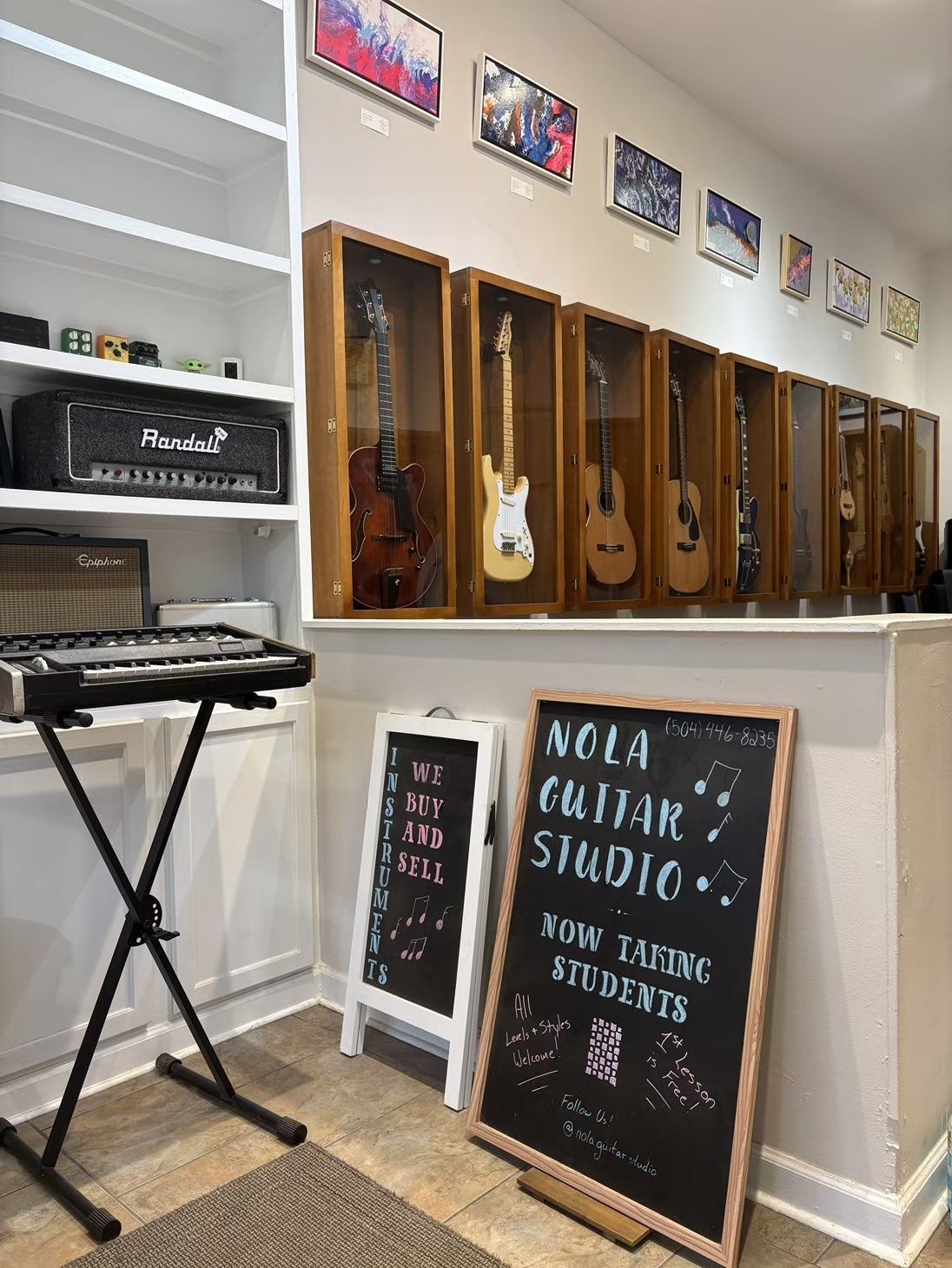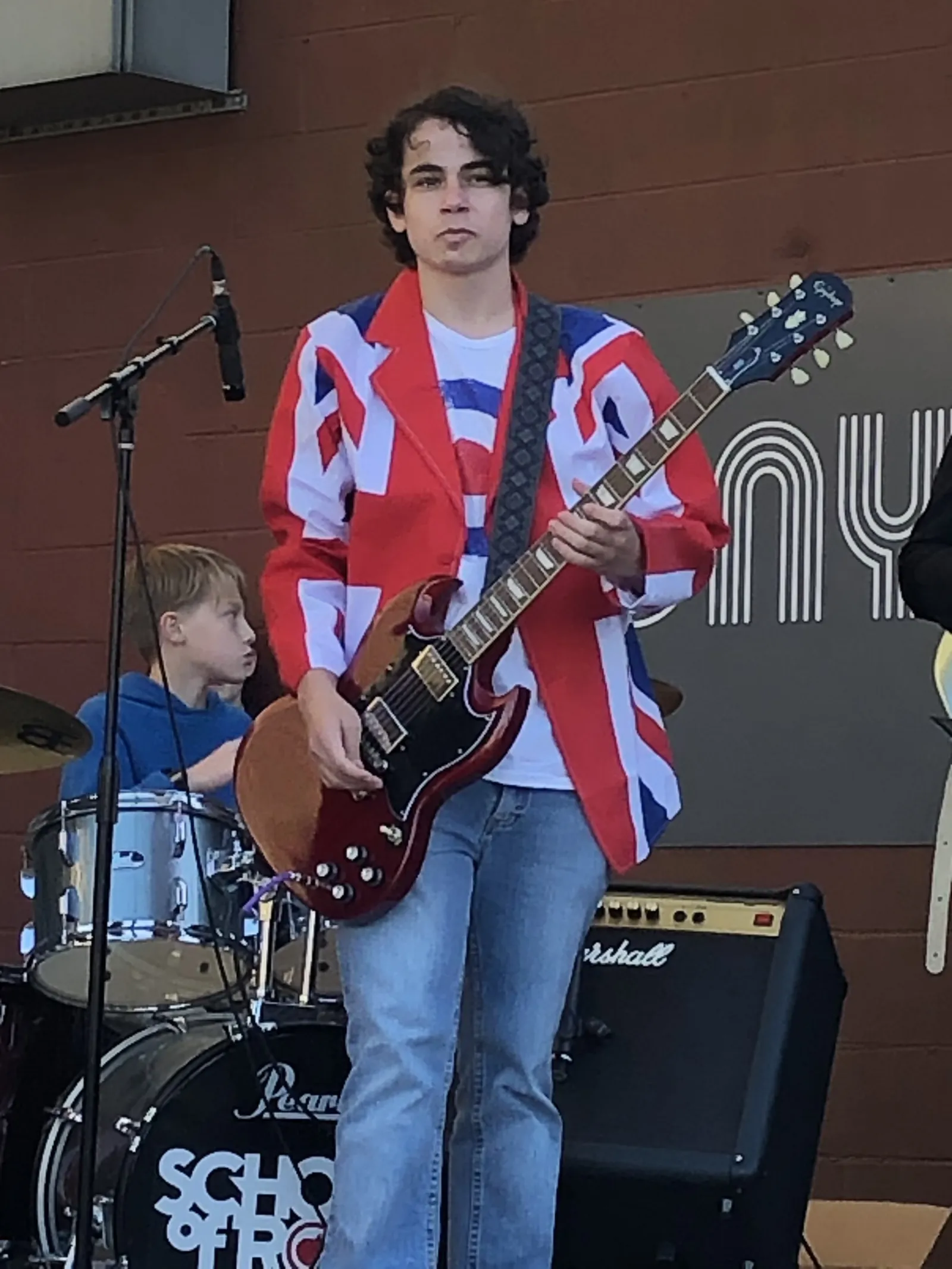Learning an Instrument in NOLA
The Center for Music and Medicine's Director Alexander Pantelyat, M.D., was quoted, "Listening to music activates as many, if not more, parts of the brain than any human activity—which makes it complex to study."
Music is medicine. There's plenty of research about it. Understanding the benefits of music at a neurological level, Johns Hopkins Medicine created the Center for Music and Medicine to explore the use of music and rhythm-based therapies for a number of debilitating disorders.
While listening to music is therapeutic, playing an instrument and singing can be even more beneficial. Through research at the Center for Music and Medicine, it was noted that 13 older adults who started piano lessons saw improvements in their "attention, memory, and problem-solving abilities, along with their moods and quality of life."
In this musical city, there are many options for instrument lessons for students as young as 4 and as old as 100 (or older).
Students as young as 4 years old and as mature as 80 seek lessons at New Orleans Guitar Studio on Oak Street. "What I focus on here is a comprehensive approach to the guitar. Everything we do starts from technique. We're going to talk about how to sit with the instrument and how to hold the instrument. How do we utilize the left hand? How do we utilize the right hand? That's my curriculum, and I don't change it up. My 40-year-old student is going to learn the same thing the first week that my 7-year-old student is going to learn," explained Owner/Instructor Taylor Counce.

Being a fourth-generation educator and a lifetime music education student, Counce understands the intersections of learning an instrument, feeling pressured to perform, and genuine enthusiasm for music. His holistic lessons are designed to increase focus and appreciation for budding musicians. "I think the perception of me would be very rigid or strict about how to play the instrument, but it's so low pressure here. The idea is, at least with the young ones, I'm getting them to associate focus with play and fun. The adults are just as unfocused as the middle schoolers. Some of them just want to come and hang out for an hour. I'm fine with that. But I'm going to load you down with stuff during the week."
Taking an entirely different approach, School of Rock uses performance-based lessons to get students motivated to learn. Owner CR Gruver, a member of the New Orleans Suspects, explained, "I'm a musician myself. I come from a classically-trained piano playing background. When I found out about this concept of performance-based music lessons, I just absolutely fell in love with the idea. It gives these kids an opportunity to learn not just an instrument but to be with each other and rehearse. It builds self confidence, it builds leadership skills—all these things you get in sports programs that are life lessons that can be translated to the rest of your life."

School of Rock has over 400 locations worldwide, each with live concerts scheduled regularly. Students of all ages are initially given lessons on their instrument of choice, then assigned to groups tasked with learning and performing songs for an upcoming concert. "We start at 4 years old, and we go all the way to 100. For about 15 weeks or so, we work on songs. At the end of every season, we do a show. We had a drum student in his 70s. He was terrified of the performance aspect. He kept saying he couldn't do it, but he loved playing in the band. We did the show at the Maple Leaf, and he did the show and survived it. I'll never forget the look on his face after the show."
While rehearsing their assigned songs at school and at home, students are educated on theory and reading music via the Method app; however, the interaction with bandmates is invaluable, much like the group dynamic of team sports. "You need to learn to play with other people, to listen, and be respectful. That's what I really have seen in the performance model—the confidence that's built. It instills in them the ability to follow instruction and to work with others. We're making musicians, but we're also helping make better people," Gruver said.
People of all ages and skill levels will benefit from learning to play an instrument regardless of what they intend to accomplish by taking lessons. "I just want to encourage music," noted Gruver. "I don't care if you're doing it here or somewhere else. We need more musicians in the world. My two daughters go to the Octave School of Music for classical music. Even Lafargue Pianos across the street—those guys are great."
Counce emphasized that the "intrinsic value of music" is indispensable. He said, "Parents want to hear that your kids will score in the top 10 percentile of any testing group they're put in because they're learning pattern recognition, analysis, and exercising base algebra when they're reading sheet music, but that shouldn't be the reason. The reason should be that it supports your emotional health. It's therapeutic. It can pull you out of some of the darkest periods of your life. Music is intrinsically valuable in and of itself in the same way that math, science, and literature are."
Those looking to learn can also check out Spreading the Music, NOLA School of Music, and Metairie Music Academy for more class styles and instrument options. There's no better time to start learning to play music.

